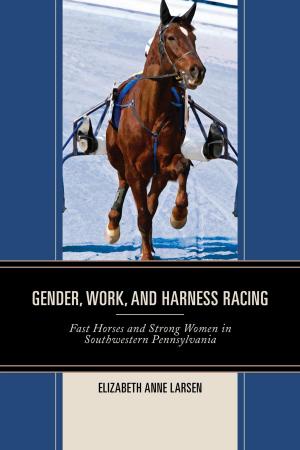Maximino Avila Camacho and the One-Party State
The Taming of Caudillismo and Caciquismo in Post-Revolutionary Mexico
Nonfiction, Social & Cultural Studies, Political Science, Social Science| Author: | Alejandro Quintana | ISBN: | 9780739137499 |
| Publisher: | Lexington Books | Publication: | March 15, 2010 |
| Imprint: | Lexington Books | Language: | English |
| Author: | Alejandro Quintana |
| ISBN: | 9780739137499 |
| Publisher: | Lexington Books |
| Publication: | March 15, 2010 |
| Imprint: | Lexington Books |
| Language: | English |
Maximino Avila Camacho and the One-Party State: The Taming of Caudillismo and Caciquismo in Post-Revolutionary Mexico is a political biography of General Maximino Avila Camacho (1891D1945), one of the most powerful regional politicians in Mexico from 1935 to 1945. He was a member of an officially sponsored party, known today as the Institutional Revolutionary Party (PRI), which claimed to represent the goals of the Mexican Revolution (1910D1921) and which managed to win most federal and regional elections from 1929 until its first presidential defeat in 2000. Maximino (as he is commonly known) became a powerful politician at the time when the official party effectively transformed the Mexican political system from one based on the personal power of regional strongmen and political bosses relying on clientelistic networks (popularly known as 'caudillos' and 'caciques') to a modern one based on a centralized civilian administration supported by institutions. The story of Maximino, the powerful cacique of the state of Puebla, demonstrates that the emergence of the one-party-dominated Mexican state did not destroy caudillos and caciques but simply controlled them. Specifically, it shows how the official party incorporated these leaders and their authoritarian practices into the state's political machinery. The result was 71 years of one-party political domination based on a political culture that emphasized patronage, favoritism, corruption, coercion and co-optation. By tracing Maximino's career, from revolutionary soldier to powerful political leader, we learn how and why the goals that had originally inspired the 'party of the revolution'—primarily democracy and social justice—were sacrificed in order to empower it.
Maximino Avila Camacho and the One-Party State: The Taming of Caudillismo and Caciquismo in Post-Revolutionary Mexico is a political biography of General Maximino Avila Camacho (1891D1945), one of the most powerful regional politicians in Mexico from 1935 to 1945. He was a member of an officially sponsored party, known today as the Institutional Revolutionary Party (PRI), which claimed to represent the goals of the Mexican Revolution (1910D1921) and which managed to win most federal and regional elections from 1929 until its first presidential defeat in 2000. Maximino (as he is commonly known) became a powerful politician at the time when the official party effectively transformed the Mexican political system from one based on the personal power of regional strongmen and political bosses relying on clientelistic networks (popularly known as 'caudillos' and 'caciques') to a modern one based on a centralized civilian administration supported by institutions. The story of Maximino, the powerful cacique of the state of Puebla, demonstrates that the emergence of the one-party-dominated Mexican state did not destroy caudillos and caciques but simply controlled them. Specifically, it shows how the official party incorporated these leaders and their authoritarian practices into the state's political machinery. The result was 71 years of one-party political domination based on a political culture that emphasized patronage, favoritism, corruption, coercion and co-optation. By tracing Maximino's career, from revolutionary soldier to powerful political leader, we learn how and why the goals that had originally inspired the 'party of the revolution'—primarily democracy and social justice—were sacrificed in order to empower it.















